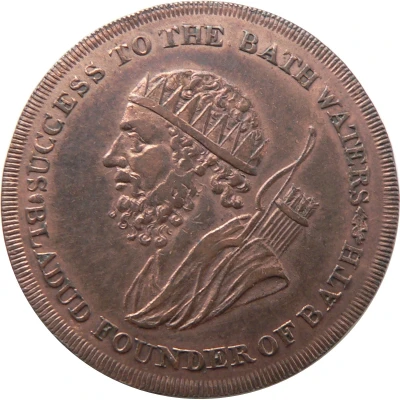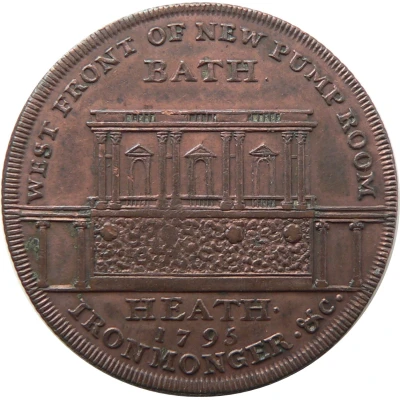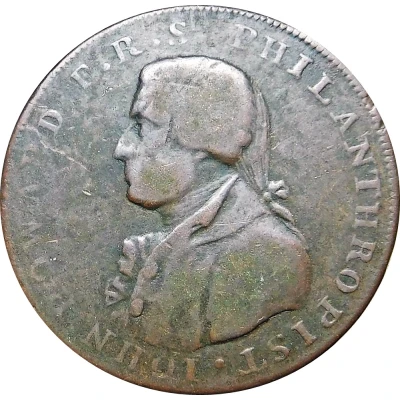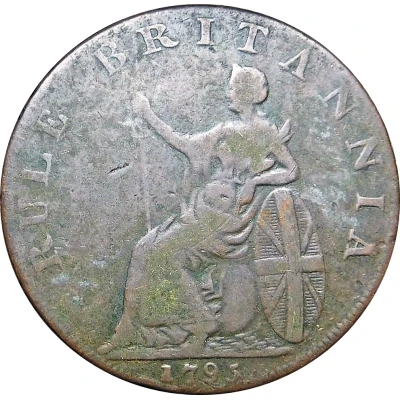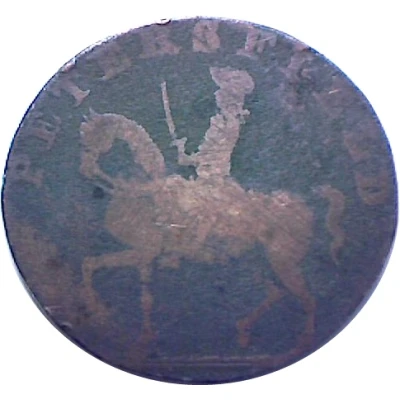
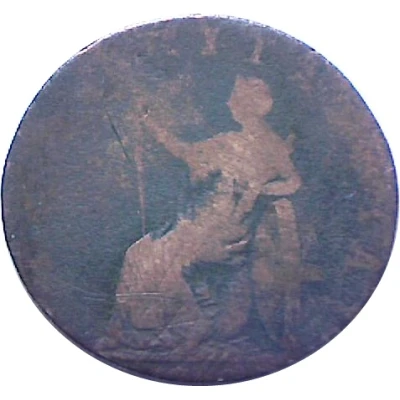

© ZacUK
½ Penny Hampshire - Petersfield / Holland and Andrews
1795 year| Copper | - | 28 mm |
| Issuer | United Kingdom (United Kingdom, British Overseas Territories and Crown Dependencies) |
|---|---|
| Type | Token |
| Year | 1795 |
| Value | ½ Penny (1⁄480) |
| Currency | Conder tokens (1787-1797) |
| Composition | Copper |
| Diameter | 28 mm |
| Thickness | 1.2 mm |
| Shape | Round |
| Technique | Milled |
| Demonetized | 1797 |
| Updated | 2024-10-09 |
| Numista | N#78373 |
|---|---|
| Rarity index | 92% |
Reverse
Britannia facing left, seated on globe, her right hand holding spear, her left arm holding laurel-branch and resting on Union shield at her side. Date in exergue
Script: Latin
Lettering:
RULE BRITANNIA
1795
Edge
Incuse legend with the remainder engrailed
Note: varieties exist
Lettering: PAYABLE IN LONDON
Comment
This halfpenny token is one of a series of mules manufactured by Peter Kempson at his works in Birmingham. In the 18th century, token manufacturers often used their dies to their own advantage by striking “mules”, solely with the object of creating rare varieties which were sold to the collectors of the day.Petersfield is a market town situated on the northern slopes of the South Downs, 17 miles north of Portsmouth, in Hampshire, England. The town is on the crossroads of well-used north–south and east–west routes and it grew in prosperity due to its position as a coach stop as well as its local sheep farming, and cottage industries of leather and cloth.
The town was founded during the 12th century by William Fitz Robert, 2nd Earl of Gloucester, and confirmed by charter in 1198 by John, Count of Mortain, the later King John.
Engraver - Wyon. Manufacturer - Kempson. Proprietors - Holland & Andrews.
Note: as with many, if not most of the Conder series, this type can be considered a mule: the obverse is as D&H# 48, the reverse is as D&H# 49 & 21
Interesting fact
One interesting fact about the Token ½ Penny (Hampshire - Petersfield / Holland and Andrews) 1795 from United Kingdom is that it was issued during a time of severe coinage shortages in the country. The coin was minted by a private company, Holland and Andrews, and was one of many tokens issued by local businesses and traders to address the lack of official currency. Despite being made of copper, the token had a relatively high value and was widely accepted in the region. Today, it is a highly sought-after collector's item among numismatists.
